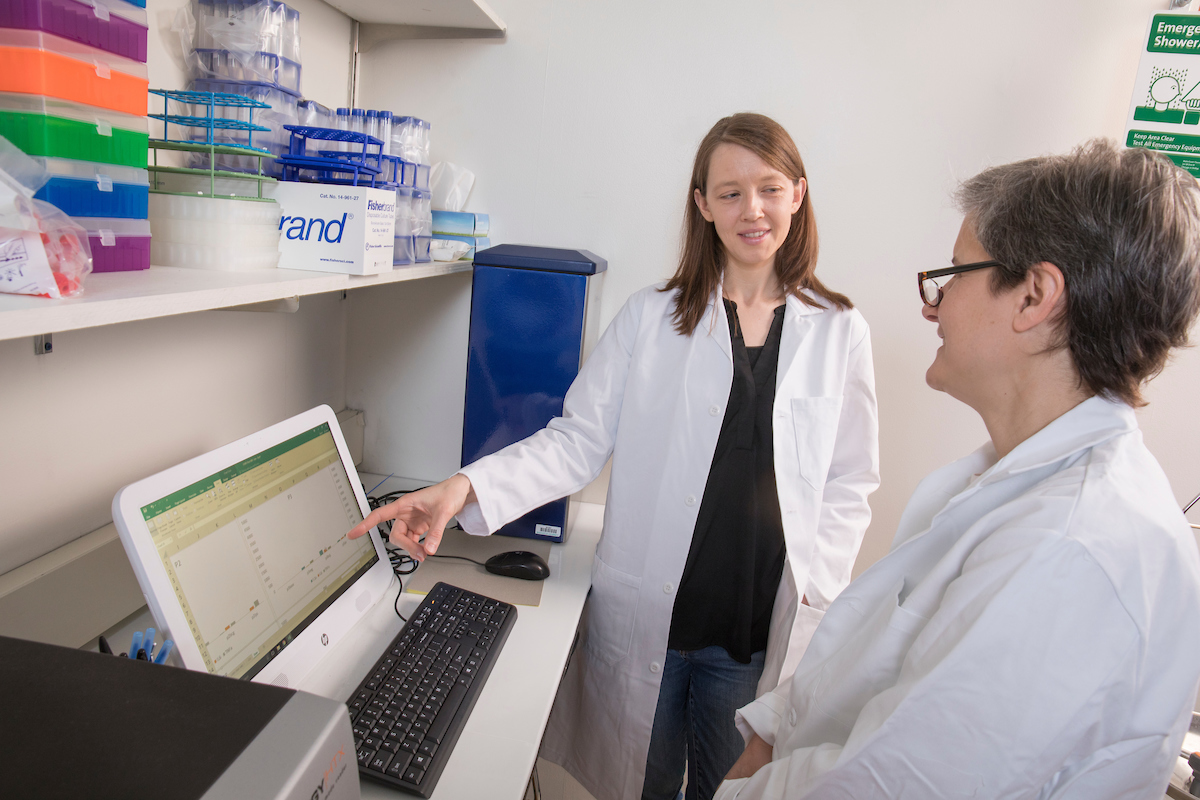10 million reads: Binghamton University faculty share their expertise through The Conversation

As an expert on philanthropy, David Campbell is reaching people around the world after earning more than 1 million reads through The Conversation, a nonprofit that publishes stories written by academic experts and edited by journalists for the general public. In fact, after one of his recent articles, the editor of an academic journal reached out to Campbell to inquire about a major spike in traffic to his work.
“When I wrote about giving in response to disaster for The Conversation, I linked to an article I had published a number of years earlier in the academic journal Nonprofit Management and Leadership. The Conversation article drove traffic to the journal article, such that it was the most downloaded article for the publication for a while,” said Campbell, professor of public administration. “The editor wanted to know why that article had generated so much attention all of a sudden, and I told him it had to do with The Conversation. I then suggested he encourage other authors whose work was accepted for publication in that journal to write about it for The Conversation, and a few did.”
Campbell is one of many Binghamton faculty who have written for The Conversation. Writers work with editors to craft articles based on timely topics related to their research. The goal is to explain often complex and/or controversial topics in a way that’s easy for a general audience to understand. Articles are published through a Creative Commons license, meaning other outlets can then republish the articles, free of charge.
“Academics have long written op-eds in the media, but the stories in The Conversation are meant to be explanatory journalism — helping readers understand events in the news and learn about the latest research and ideas coming out of academia,” said Martin LaMonica, director of editorial projects and newsletters at The Conversation.
For Provost Donald Hall, working with The Conversation serves a larger purpose: it will help to dispel myths about academia and inform the public of important work being done by Binghamton faculty.
“I know that there are too many people who still feel that the research that we do on university campuses is either too abstract or disconnected for their daily lives,” said Hall. “This is the destructive myth of the ‘ivory tower,’ where work is done that has no relevance outside of its own walls. As a major public institution, it is critical that we allow the general public to see the importance of our work and understand how it has the potential to change their lives for the better.”
Binghamton University recently hit a major milestone when it reached 10 million reads of articles published through The Conversation. Reads include articles directly published by The Conversation and those republished by other outlets. Some of Binghamton’s top republishers include Fortune, CNN, Smithsonian Magazine and Salon. And faculty are hitting a global audience, with readers based in Indonesia, the United Kingdom, Australia, the Philippines and New Zealand, among other nations.
“It confirms what we already know — that our faculty are on the cutting edge of their fields and doing transformational research,” said Hall. “It also demonstrates that their work is not just theoretical or inaccessible, it can be understood as broadly transformative in the ‘real world.’”
Binghamton University is one of 50 U.S. research institutions and one of 18 Founding Partners of The Conversation U.S. Representatives from The Conversation visit Binghamton regularly to review its writing and publishing process with faculty and to hear story pitches. Eighty-three different authors from the University have published a total of 153 articles through the platform, on topics as diverse as romantic relationships, COVID-19 and horse racing.
“The Conversation helps our faculty reach a national and international readership that would otherwise be impossible for them to address,” said Hall. “Every time a byline appears with Binghamton University after the name of the faculty member, our reputation is enhanced. It is great outreach for them and for us.”
Campbell is one of Binghamton’s most prolific authors, with a total of 13 articles as of this story’s publication, including an article about giving in response to a natural disaster and another about billionaire philanthropy. He said that writing for The Conversation has made a difference for him professionally.
“First, it has raised my profile outside of the world of other scholars who study nonprofit organizations and philanthropy,” said Campbell. “It has offered a kind of legitimacy with practitioners that you can’t get from journal articles, because practitioners don’t read them. Writing for The Conversation has also led to inquiries from mainstream news outlets, such as USA Today, which has further increased awareness of my work.”
Lina Begdache, associate professor of health and wellness studies, has written several articles for The Conversation, and has even appeared on its podcast, where she discussed the science of sugar. She believes that the experience has helped raise her profile as a researcher, and she encourages other faculty to give it a try.
“Writing for The Conversation promoted readership of my work, which was important for a rising researcher,” said Begdache.
Writing for the general public allows Binghamton researchers the chance to introduce ideas that the lay audience might not otherwise learn about, and puts their research to use by helping the public better understand complex and sometimes controversial topics.
“Writing for The Conversation has forced me to think in more practical terms about the research I do, or the knowledge I have and how to present it in a more accessible form, for the general public, certainly, but also to students,” said Campbell. “In that way, I think it has made me a better teacher, and better able to communicate bigger concepts that interest me.”
To learn more about writing for The Conversation, contact Ryan Yarosh, director of media and public relations, at ryarosh@binghamton.edu.
